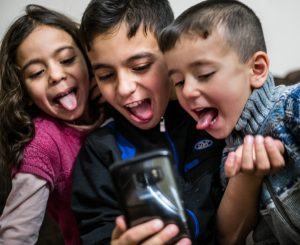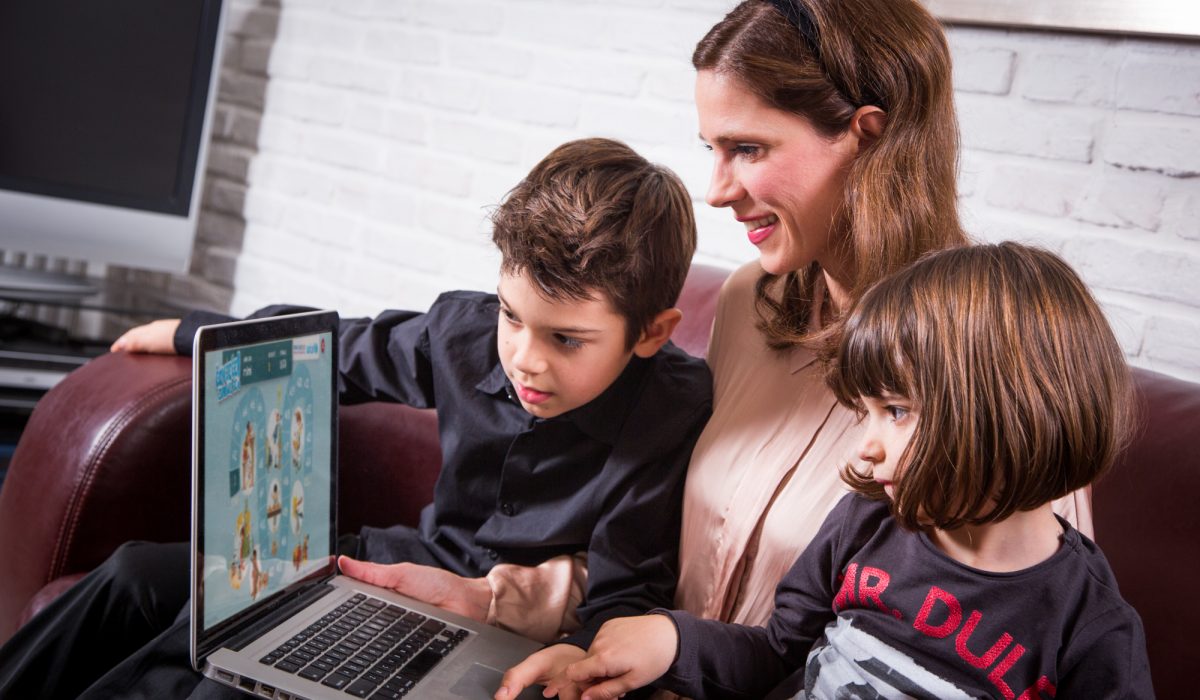
Image credit: UNICEF and Ashley-Gilbertson
Kids Online Uruguay seeks to offer a better understanding of how children access and use the internet, what skills they have, what risks and opportunities they face online, and how they navigate the digital ecosystem. The research involved a national survey with 948 children aged 9 to 17 and their parents; representative of locations of 5,000 or more inhabitants in Uruguay. The main findings are published in the country report Kids Online Uruguay 2017 (in Spanish) and include:
- All children who took part in the survey have used the internet at least once in their life. 7 out of 10 children and adolescents access the internet daily.
- The mobile phone is the device used most often to connect to the internet – 8 out of 10 children use it, with almost 5 out of 10 using a mobile “almost all the time” or “several times a day”.
- Not all children are equally skilled users – their digital skills vary according to age and socioeconomic status. For example, only 36% of children aged 9 to 12 know how to make their profiles private, while 91% of adolescents between 16 and 17 years know how to do this.
- Most children find the internet a positive experience – 7 out of 10 children think that there are good things for them on the internet.
- Children and adolescents recognise their difficulties in self-regulating the time they spend online: 1 in 10 children have experienced problems with grades, family or friends, missing meals, or losing sleep due to excessive internet use. However, children also point out that adults in their families have similar problems and would use their mobile devices during meals or family gatherings.
- Many children and adolescents are aware of the risks that exist on the internet. Half of them say they do not feel entirely safe when they are online.
- A safe use of the internet involves support and mediation from parents or educators. Nearly 2 out of 3 children receive advice (“always” or “almost always”) from a responsible adult on how to use the internet safely. However, almost 3 out of 10 children and adolescents believe that their parents know “little” or “nothing” about what they do online.
- 28% of children and adolescents have experienced something online that made them feel uncomfortable or upset. Only half of them asked for help or discussed the incident with another person.
- Parents are not always aware when their children contact online people they do now know in person. While 42% of children and adolescents say they have been in contact online or added as a friend someone they do not know, only 18% of adults say their child has been in contact with someone they do not know.
- The use of the internet always entails a combination of opportunities and risks – the more time children spend online, the greater the benefits and the more risks they face.
The country report draws on mainly on the findings from the Kids Online Uruguay survey, which had three versions of questionnaire: for children between 9 and 12 years, for adolescents aged between 13 and 17 years old, and one version for adults. The publication also contextualises these results with findings from a qualitative study conducted by UNICEF Uruguay in the framework of the State of the World’s Children 2017: Workshops RErights. These workshops involved discussions with children and adolescents on their access and use of digital technology.
Download the country report (in Spanish)
Download the press release (in English)
More about Kids Online Uruguay
State of the World’s Children 2017: Workshops RErights
Post authors: Matias Dodel (Universidad Católica del Uruguay) and María Victoria Blanc (UNICEF Uruguay)
You can sign up to receive the latest research news from Global Kids Online by email. Please forward this message to anyone you think may be interested.








